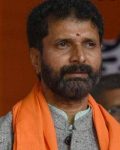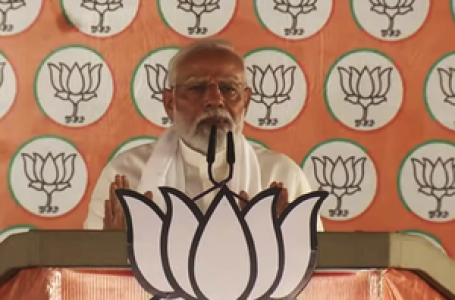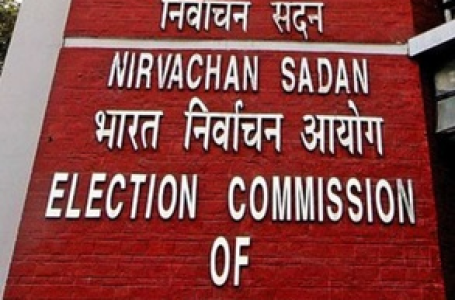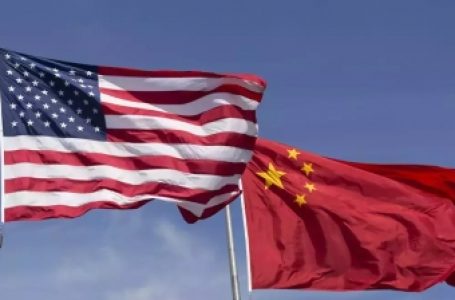Dec 28, 2019
New Delhi: As the year 2019 draws to a close, here is a recap of five major judgements delivered this year by the Supreme Court, which have had a huge impact in the country’s politics, business and social spheres.
Ayodhya Title Dispute:
In a unanimous verdict, the Supreme Court on November 9 ruled that the entire 2.77 acres disputed land in Ayodhya should be granted for the construction of Ram Mandir, as the Muslim parties failed to prove exclusive possession to the site. However, the apex court, by invoking powers under Article 142 of the Constitution, allocated an alternate plot of five acres to the Sunni Central Waqf Board for the construction of a mosque in Ayodhya, after holding the placing of idols in the structure and its razing to be illegal acts.
Holding that the “possessory claim of the Hindus to the composite whole of the disputed property stands on a better footing than the evidence adduced by the Muslims”, the apex court ordered the construction of Ram temple at the disputed site by formulating a trust.
The five-judge bench, headed by then Chief Justice Ranjan Gogoi, took account the balance of probabilities, where it saw clear evidence the worship by the Hindus in the outer courtyard continued unimpeded in spite of the setting up of a grill-brick wall in 1857.
“The Muslims have offered no evidence to indicate that they were in exclusive possession of the inner structure (the birthplace of Lord Ram) prior to 1857 since the date of the construction in the sixteenth century,” the court observed.
It said that the Hindus’ possession of the outer courtyard stands established together with the incidents attaching to their control over it. The court observed in connection with the inner courtyard, there is evidence on a preponderance of probabilities to establish worship by the Hindus prior to the annexation of Oudh by the British in 1857.
The five-judge bench admitted that it is “is tasked with an adjudicatory task of unique dimension” and that the current dispute is over immovable property, and the court does not decide title on the basis of faith or belief but on the basis of evidence.
“The law provides us with parameters as clear but as profound as ownership and possession. In deciding title to the disputed property, the court applies settled principles of evidence to adjudicate upon which party has established a claim to the immovable property,” it observed.
The apex court later dismissed pleas for review of its verdict.
Adjusted Gross Revenue (AGR) from telecom companies:
The Supreme Court, on October 24, ordered telecom carriers, including sector majors Bharti Airtel Ltd and Vodafone Idea Ltd, to pay the government as much as Rs 92,000 crore ($13 billion) in past dues, which includes penalties and interest.
A bench headed by Justice Arun Mishra said telcom companies will have to shell out the dues as estimated by the Department of Telecom (DoT).
“We allow the appeals of the of DoT…. The gross revenue will prevail as defined…,” said the court citing no further exercise should take place in connection with re-calculations regarding the dues and that there should not be any further litigation on the matter.
The apex court said it will also pass a separate order on the specific time frame for the telecom companies to pay their dues.
The telecom companies had disputed the definition of adjusted gross revenue (AGR), forming the basis for both spectrum charges and licence fee, paid to the government. According to the DoT, the AGR should include dividends, handset sales, rent and profit from the sale of scrap besides revenue from services.
The apex court said that most things will come under the government’s definition of AGR and telecom companies shall have to pay up. The telecom companies have filed a review plea against this verdict.
Is RTI applicable to the Chief Justice of India’s office?
The Supreme Court, on November 13, answered the question put to it, as to “how transparent is transparent enough”, under the Right to Information Act (RTI) Act, by pronouncing the office of Chief Justice of India is a public authority under the law’s ambit.
Applying riders, the court has asked the Information Commissioner to apply test of proportionality while acting on applications seeking information from the office of Chief Justice, bearing in mind the right to privacy and independence of the judiciary.
The majority judgement was delivered by a five-judge Constitution bench headed by then Chief Justice Ranjan Gogoi and comprising Justices N.V. Ramana, D.Y. Chandrachud, Deepak Gupta and Sanjiv Khanna.
The apex court observed given the nature of the information sought, disclosure of the information will serve the larger public interest and, therefore, such interest outweighs the privilege of exemption granted to personal information under RTI Act.
“If any personal information is involved, the same could be dealt with on a case-by-case basis by disclosing the information that serves public interest after severing the records as per Section 10 of the RTI Act,” said the apex court. Therefore, the Chief Justice and other functionaries are meant to discharge their constitutional duties and not act as a fiduciary of anyone, except the people.
The apex court dismissed the civil appeal and upheld the Delhi High Court’s January 12, 2010 order, which had upheld the order passed by the Central Information Commission (CIC) directing the CPIO, Supreme Court, to furnish information on the judges of the Supreme Court who had declared their assets.
“Such disclosure would not, in any way, impinge upon the personal information and right to privacy of the judges,” observed the court.
Sabarimala review to wait till SC’s larger bench decides on power to probe religious practices
The Supreme Court, on November 14, kept the final decision on the Sabarimala review and writ petitions under a temporary suspension till a larger bench of seven judges settles the exact role of the court in deciding whether a particular practice is essential or integral to a religion.
“The subject review petitions as well as the writ petitions may, accordingly, remain pending until determination of the questions indicated by a larger bench as may be constituted by the Chief Justice of India,” said a majority bench headed by then Chief Justice Ranjan Gogoi.
The top court gave no stay on its earlier judgement lifting a ban on the entry of women aged between 10 and 50 years into the Sabarimala temple in Kerala. A five-judge bench, in a 3:2 decision, clubbed the matter with entry of Muslim women to mosques and Parsi women to the ‘Tower of Silence’.
The bench, also comprising Justices Indu Malhotra, A.M. Khanwilkar, D.Y. Chandrachud and Rohinton Nariman, was hearing review petitions filed on the top court’s September 28, 2018 judgement which had lifted a ban on the entry of women aged between 10 and 50 years to the hilltop shrine. Justices Chandrachud and Nariman have written separate dissenting judgments.
The Chief Justice’s majority judgement observed it is time to evolve a judicial policy to do complete justice and for an authoritative enunciation of the Constitutional principles by a larger bench of not less than seven judges.
According to this verdict, women of all ages can visit the shrine till a larger bench decides this issue, which is actually no relief to petitioners who had moved the top court seeking a review of its previous judgement. However, the majority verdict did not pass any decision against the apex court’s September 28, 2018 decision allowing women to enter the shrine nor did it stay the previous judgement. The matter is likely to take up by a seven-judge bench in January.
Aadhaar Judgement referred to a larger bench:
The Supreme Court, on November 13, while referring the case on the Finance Act 2017 being passed as Money Bill to a larger bench, said the larger bench should also look into the correctness of the Aadhaar judgment as the Aadhaar Act was also passed as a Money Bill.
A five-judge bench headed by then Chief Justice Ranjan Gogoi said: “The issue and question of Money Bill, as defined under Article 110(1) of the Constitution, and certification accorded by the Speaker of the Lok Sabha in respect of Part-XIV of the Finance Act, 2017 is referred to a larger Bench.” Therefore, it is apparent that a larger judge bench may look into the Aadhaar judgment.
The Finance Act 2017 brought in provisions concerning the functioning of tribunals, which were challenged, as it was passed as a Money Bill. The apex court had also struck down the rules formulated by the Centre on appointment and service conditions for members of various tribunals.
The Centre had relied on the Aadhaar judgment to strengthen its case and this led the top court examining the judgment in connection with the Constitution’s Article 110, which defines “money bills”. The court noted that the Attorney General has propounded that constitutionality of the Finance Act, 2017 would be safe if its dominant provisions, which form the core of the enactment, fall within the ambit of Article 110’s provisions. “As per such interpretation, provisions ought not to be read in a piece-meal manner, and judicial review ought to be applied deferentially,” said the court.
The top court observed the majority judgment in the Aadhaar verdict did not clarify and explain the scope of sub-clauses (a) to (f) to clause (1) of Article 110.
“It is clear to us that the majority dictum in K.S. Puttaswamy (Aadhaar-5) did not substantially discuss the effect of the word ‘only’ in Article 110(1) and offers little guidance on the repercussions of a finding when some of the provisions of an enactment passed as a ‘Money Bill’ do not conform to Article 110(1)(a) to (g)”, said the court. IANS

















